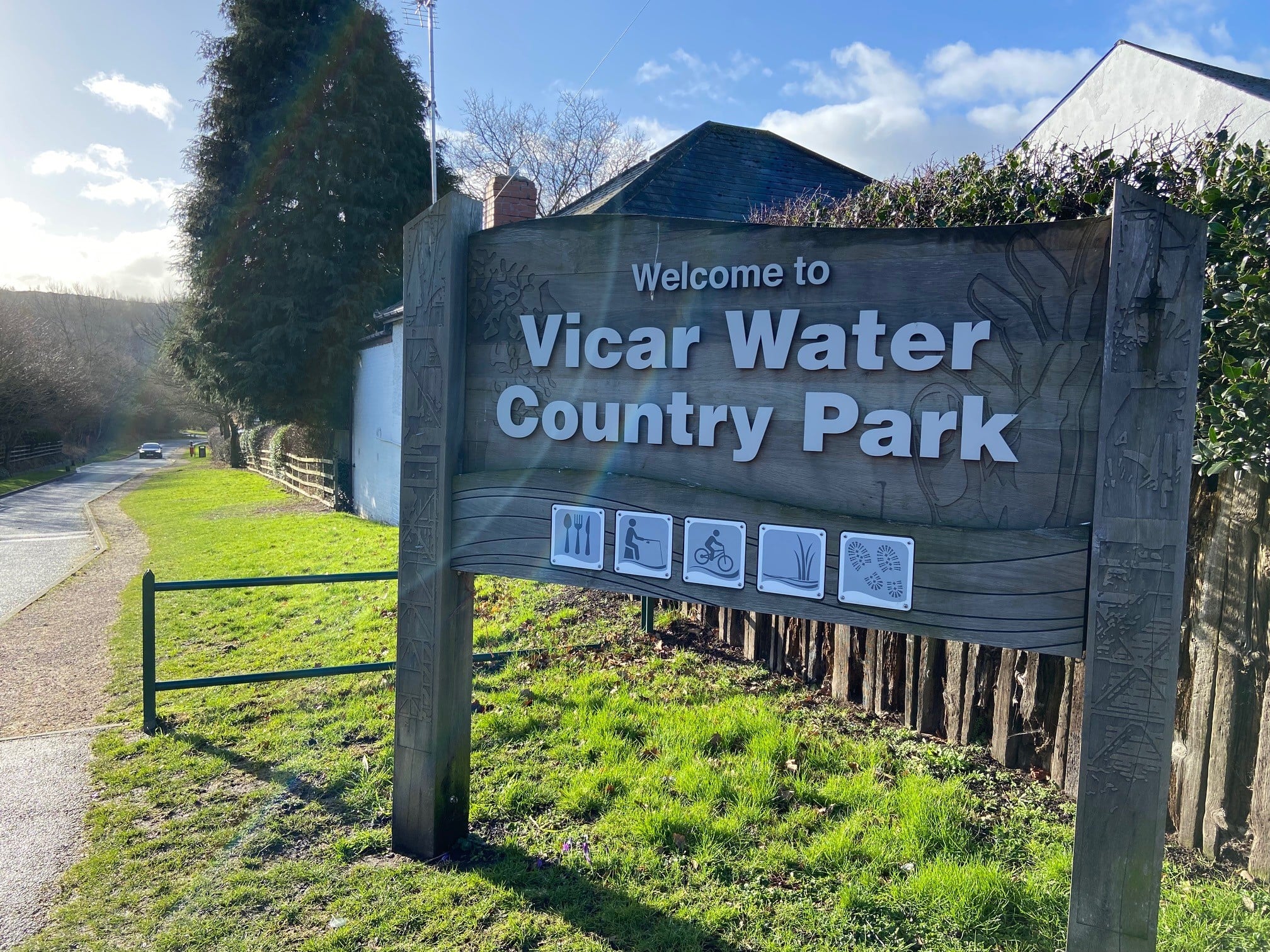Newark and Sherwood District Council’s work to decarbonise a number of its buildings powers on as Vicar Water Country Park is added to its list of sites fitted with solar photovoltaic (PV) panels.
Work to install the panels began this week on Green Flag award-winning Vicar Water Country Park’s visitor centre and Rumbles café building, and this is the third site of five being fitted with solar PV panels over the next few months.

Solar panels have already been installed at Newark Sports and Fitness Centre and the Newark Beacon, with Dukeries Leisure Centre and Sconce and Devon next.
54 solar panels are being fitted at the site and are estimated to generate over 19,000 kWh per year which equates to 4 tonnes of CO2 each year.

Councillor Keith Melton, Portfolio Holder for Climate Change at Newark and Sherwood District Council, said: “I’m thrilled to see solar energy brought to another one of our sites and another step being taken towards creating a greener and more sustainable future for Newark and Sherwood.

“I’m looking forward to seeing what results we can achieve with these installations once all the sites are complete, and how this larger scale, long-term investment will further our efforts towards achieving our carbon net zero goals.”

Vicar Water Country Park is located in Clipstone on the site of a former colliery, which has been transformed over the years into a thriving green space that is not only enjoyed by residents and visitors, but plenty of biodiversity too. The heathland, woodland and grassland, and lake all provide homes and food for a variety of wildlife, including kingfishers, herons, water scorpions, frogs and newts, emperor dragonflies, green woodpeckers, and more.
Councillor Emma Oldham, Portfolio Holder for Biodiversity and Environmental Services at Newark and Sherwood District Council said: “Our parks and greens spaces play such an important role in supporting our environment and it is wonderful to see solar energy being brought to Vicar Water Country Park.
“We know how vital it is that we continue to work towards reducing our carbon footprint and I’m so pleased to see these solar panel installations as part of our programme of works to do just that.”
After declaring a Climate Emergency in 2019, the District Council is doing all it can to reduce its carbon footprint and these installations are part of a number of new initiatives being implemented to reduce carbon emissions by 2,165 tCO2e, which is the equivalent of an average family diesel car driving 12.99 million miles**.
Other work includes planting a record number of trees, with a target of 10,000 already surpassed with 22,204 trees given away to be planted or planted by the Council so far. It is also deploying electric vehicles and carbon neutral forms of transport to its fleet. Further plans to decarbonise Council owned buildings were approved in September 2023, and work to decarbonise social housing already moving forward.
Carbon net zero means that any carbon emissions created are balanced out by taking the same amount out of the atmosphere. Net zero will be reached once the amount of carbon emissions added is no more than the amount removed.
To achieve the targets, and to ensure ongoing transparency, the Council will be recording its carbon footprint on an annual basis so that progress can be measured and monitored.
If you are thinking of installing Solar Panels, or have recently had them fitted, the National Energy Action (NEA) website provides useful information that could help you better understand and maximise the benefits of having these.
• Beeston: Multi-million pound railway station improvement begins
• Crown Prosecution Service to be investigated over Nottingham stabbing case







